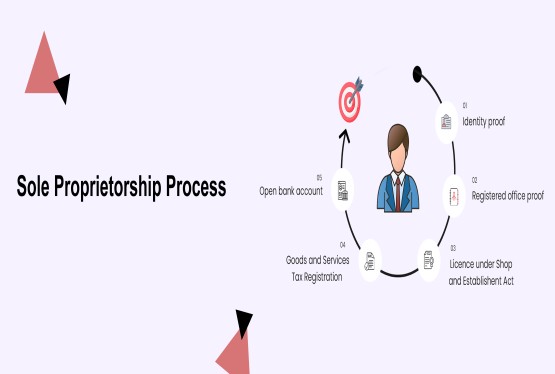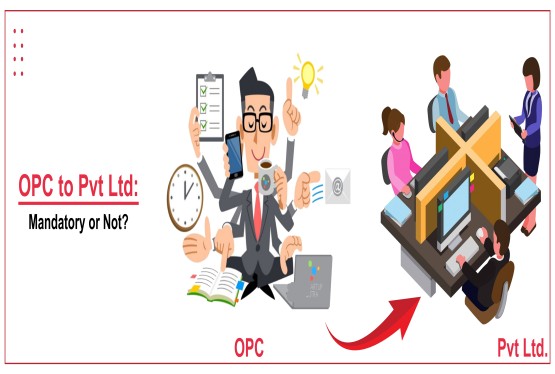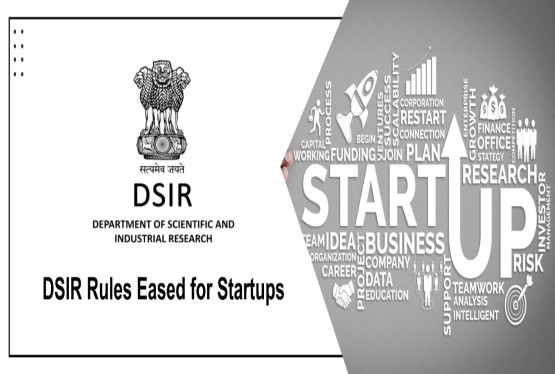Establishing an IT company in India has become increasingly accessible, thanks to the country’s evolving digital ecosystem and supportive business infrastructure. With affordable operational costs, a vast talent pool of tech professionals, and strong government initiatives promoting digital innovation, India stands out as a prime destination for launching technology ventures. Whether you're a budding entrepreneur or a global enterprise, the Indian market offers immense opportunities for growth, scalability, and global competitiveness in the IT sector.
One of the biggest advantages of setting up an IT company in India lies in its combination of affordability and talent. The low cost of living and operational expenses, coupled with the availability of highly qualified software developers, engineers, and consultants, creates an ideal foundation for launching a successful service-based IT company.
What is IT Company?
A service-based IT company is one that focuses on providing digital solutions, technical expertise, or IT support to other businesses or clients, rather than selling physical products. These services are intangible and usually come in the form of knowledge, skills, or digital amenities such as software development, consulting, cloud services, maintenance, or cybersecurity. The company's main offering is its ability to understand a client’s needs and deliver customized, tech-enabled services that solve specific problems or improve business efficiency. Service-based IT companies often work on a project or contract basis, with success relying heavily on the expertise and experience of their workforce.
What is Included in IT Services?
The scope of IT services is vast and includes various specialized areas that support and strengthen a company’s digital and operational framework. Below are the core services typically offered by IT companies:
IT Consultancy
IT consultancy involves strategic advisory services offered by experienced professionals to assist businesses in planning and executing complex technology projects. These services are crucial when organizations lack internal technical expertise or face large-scale infrastructure and software upgrades. Consultants work closely with different departments and external vendors to ensure the smooth integration of systems, compliance with best practices, and the successful implementation of IT initiatives. Renowned consultancy service providers in India include Tata Consultancy Services (TCS) and Tech Mahindra.
Cloud Computing Services
Cloud computing has revolutionized the way businesses access and manage data and applications. These services offer scalable, secure, and cost-efficient solutions for storage, computing power, and software access over the internet. Companies benefit from enhanced flexibility and performance while reducing reliance on physical infrastructure. Major global providers such as Microsoft Azure and Amazon Web Services (AWS) offer robust cloud platforms that cater to businesses of all sizes.
Website Development
Website development is a fundamental IT service that focuses on designing, developing, and maintaining web applications and platforms. In today's digital economy, a professionally developed website is often the first point of interaction between a business and its clients. Web development services cover everything from static websites to complex, dynamic web-based software tailored to the client's operational needs and market demands.
IT Security Services
IT security services are essential for protecting an organization’s digital assets, including databases, applications, servers, and networks. These services encompass various domains such as network security, endpoint protection, and internet security. Service providers implement stringent access controls, encryption methods, and threat detection systems to prevent unauthorized access, data breaches, and cyber threats. IT security also includes information assurance to ensure the confidentiality, integrity, and availability of data.
IT Support Services
IT support involves providing technical assistance to maintain the smooth operation of IT systems within an organization. This includes troubleshooting network issues, managing databases, resolving hardware and software problems, and ensuring optimal performance of cloud services. The primary objective of IT support services is to minimize downtime, enhance productivity, and ensure business continuity through timely technical resolutions.
Business Structures Suitable for Registering a IT Company in India
Entrepreneurs looking to start a service-based IT company in India have several business structure options to choose from. These include a:
Each structure has its own set of legal, financial, and compliance implications, and should be selected based on the company’s size, funding plans, and future goals.
Foreign companies looking to enter the Indian market can establish operations by registering an Indian subsidiary. The general procedure for starting a business in India remains largely consistent across these models.
Documents Required for Registering an IT Services Company in India
To legally register an IT services company in India, you will need to prepare and submit several essential documents, depending on your chosen business structure and the nature of the stakeholders involved:
-
Photographs of all Directors, Partners, or the Proprietor.
-
PAN Cards of all Directors/Partners/Proprietor (mandatory for Indian nationals).
-
Identity Proof: Such as Driving License, Passport, or Voter ID – for all Directors/Partners/Proprietor.
-
Address Proof: Including a recent electricity bill, telephone bill, or any other utility bill of the proposed registered office.
-
Passport (Mandatory for Foreign Directors): If a foreign national is involved as a director, a valid passport must be provided.
-
For Foreign Nationals: All submitted documents must be in English and duly apostilled by the relevant authority in the director’s home country. However, if the foreign director is currently residing in India, apostille may not be required.
These documents are important for completing the company registration process with the Ministry of Corporate Affairs (MCA) and ensuring regulatory compliance.
Steps to Start an IT Company in India
Starting an IT company in India is a strategic decision that combines opportunity with innovation. However, establishing a successful business in the IT sector requires structured planning, regulatory compliance, and of the market. Here is a step-by-step guide to help you launch your IT venture the right way:
Step 1: Conduct Market Research
Before entering the IT sector, it is important to gain a thorough of the current market dynamics. Conducting in-depth market research allows aspiring entrepreneurs to identify potential competitors, analyze target customer segments, spot emerging industry trends, and recognize existing service gaps. This foundational step plays a vital role in shaping the overall business model and strategic direction of the company. Effective market research can be carried out through various methods such as conducting surveys with potential customers, analyzing discussions on social media platforms, forums, and industry blogs, and engaging in interviews with professionals working in related fields. Additionally, using online research tools and market analytics platforms can offer valuable insights. Through this process, entrepreneurs can assess the type of IT company they want to establish, understand the specific needs of their target audience, evaluate the feasibility and cost of service delivery, and identify what unique value or competitive edge their business can bring to the market.
Step 2: Choose Your IT Services
The next essential step in starting your IT company is to clearly define the range of services you intend to offer, based on your team’s technical expertise and the current demands of the industry. Some of the key service areas to consider include website and web application development, software and mobile app development, UI/UX and graphic design, digital marketing and SEO solutions, cloud hosting, data storage and management, as well as cybersecurity and IT infrastructure support. Selecting the right combination of services plays a pivotal role in determining your company’s market positioning. It enables you to focus your resources, target the appropriate customer base, and establish a strong, specialized brand identity in a competitive digital marketplace.
Step 3: Register Your Business
Business registration is a mandatory legal step and a fundamental requirement for establishing the legitimacy and credibility of your IT company in India. It not only gives your business a distinct legal identity but also opens the door to various tax benefits and regulatory advantages. Entrepreneurs can choose from several business structures based on their goals and scale of operations, including a Private Limited Company (which is the most preferred option for startups), a Limited Liability Partnership (LLP), a One Person Company (OPC), or a Sole Proprietorship. The registration process is carried out through the Ministry of Corporate Affairs (MCA), after which the business must obtain a Permanent Account Number (PAN), a Tax Deduction and Collection Account Number (TAN), and complete GST registration. These registrations are essential for conducting financial transactions, filing taxes, and operating lawfully in India’s competitive IT sector.
Step 4: Apply for Licenses and Certifications
To operate your IT company lawfully in India, obtaining the appropriate licenses is essential. Some licenses are mandatory for all businesses, while others are service-specific and may vary depending on the nature of your operations. Among the mandatory licenses, GST registration is important for taxation and billing purposes, and the Shop & Establishment Act License is required based on the location of your office premises. In addition to these, there are optional or service-based licenses such as Professional Tax Registration, the Import Export Code (IEC) if you plan to offer services to international clients, and ISO Certification, which helps enhance your company’s credibility and trustworthiness in the market. Securing the right licenses not only ensures legal compliance but also contributes to smooth day-to-day operations and builds confidence among clients and stakeholders.
Step 5: Open a Business Bank Account & Secure Funding
Opening a dedicated business bank account is essential for maintaining accurate financial records and ensuring a clear separation between personal and business transactions. It not only simplifies accounting but also enhances your company's financial transparency. Several leading banks in India, such as HDFC Bank, ICICI Bank, Kotak Mahindra Bank, SBI, and Axis Bank, offer specialized business banking solutions tailored to meet the needs of startups and growing enterprises. If you are not solely relying on personal funds, there are various funding avenues you can explore to support your IT business. These include business loans from banks or non-banking financial companies (NBFCs), investment from angel investors or venture capitalists, private equity funding, or even borrowing from friends and family. Additionally, enrolling in the Startup India initiative and obtaining DPIIT recognition can provide significant benefits such as easier access to funding, tax exemptions, and simplified regulatory compliance, making it an attractive option for new IT entrepreneurs.
Step 6: Set Up Your Office Space
Setting up an office for your IT company involves more than simply acquiring physical space it requires creating a functional and professional environment that promotes productivity and aligns with your brand identity. Depending on your budget and operational needs, you can choose between a co-working space, which is cost-effective and ideal for startups, or a leased or owned independent office. Several key factors should be taken into account while setting up your workspace, including the accessibility of the location, availability of high-speed internet with adequate bandwidth, and the number of required workstations, desktops, or laptops. Additionally, you’ll need to arrange essential equipment such as printers, scanners, and telecommunication tools, as well as ensure proper data backup systems and security protocols are in place. Your office setup should be tailored to your team size, type of client engagement, and long-term business goals while staying within your financial limits.
Step 7: Hire the Right Team
Building a successful IT company requires assembling a team of skilled professionals who bring both technical expertise and a shared sense of purpose. A strong workforce typically includes software developers, UI/UX designers, QA testers, system administrators, digital marketers, and project managers. Each plays a vital role in ensuring the seamless delivery of high-quality services. It’s essential to hire individuals who not only possess diverse technical skills across platforms and tools but also align with the company’s values of innovation, collaboration, and accountability. A well-rounded team fosters productivity, supports long-term growth, and strengthens your company’s ability to adapt in a rapidly evolving technological environment.
Conclusion
Starting an IT company in India is not only a promising business opportunity but also a strategic step toward participating in one of the world’s fastest-growing digital economies. With a supportive ecosystem, abundant skilled talent, and increasing demand for innovative tech solutions across industries, India offers an ideal launchpad for IT entrepreneurs. However, success in this field requires more than just a great idea it demands careful planning, legal compliance, the right business structure, and a team capable of delivering excellence. By following the outlined steps from market research and service selection to company registration, licensing, and team building you can lay a solid foundation for a sustainable and scalable IT business. Whether you aim to serve local clients or expand globally, India’s vibrant tech holds immense potential for long-term growth and success in the IT sector.
Frequently Asked Questions
Q1. Do I need a technical background to start an IT company in India?
Ans. No, while a technical background helps, it is not mandatory. You can hire skilled professionals to manage the technical aspects while you handle operations, business development, or strategy.
Q2. What are the best business structures for an IT startup in India?
Ans. The most preferred structures are Private Limited Company, Limited Liability Partnership (LLP), or One Person Company (OPC). These offer better legal protection and credibility, especially when dealing with clients or investors.
Q3. Is GST registration mandatory for an IT company?
Ans. Yes, if your turnover exceeds the GST threshold (Rs.20 lakhs for services), or if you provide inter-state services or work with corporate clients, GST registration is mandatory.
Q4. Do I need any specific license to run an IT services company?
Ans. Basic licenses like GST registration, Shop and Establishment License, and Professional Tax (if applicable) are needed. If you plan to offer global services, you may also require an Import Export Code (IEC).
Q5. What are the initial investment and cost involved in starting an IT company?
Ans. Costs vary depending on scale. On average, Rs.1.5 to Rs.5 lakhs may be needed for company registration, office setup, salaries, equipment, and initial marketing.
Q6. How can I get funding for my IT startup?
Ans. You can approach angel investors, venture capitalists, apply for bank loans, or register under Startup India for government benefits and funding support.
Q7. Can foreign nationals start an IT company in India?
Ans. Yes, foreign nationals can establish an Indian subsidiary or joint venture, subject to FDI norms. Required documentation and legal procedures must be followed.
Q8. What kind of services can an IT company in India offer?
Ans. IT companies typically offer services like software development, mobile app development, website development, cloud services, cybersecurity, IT consulting, and technical support.
Q9. Is it necessary to have a physical office to register an IT company in India?
Ans. Yes, you need a registered office address for legal purposes. However, co-working spaces or virtual offices (with proper documentation) are also acceptable for registration.
Q10. How long does it take to start an IT company in India?
Ans. On average, it takes 10–15 business days to complete registration, obtain basic licenses, and start operations, provided all documents are in order.












_crop10_thumb.jpg)





_crop10_thumb.jpg)




























-Form_crop10_thumb.jpg)

_crop10_thumb.jpg)























_learn_crop10_thumb.jpeg)
































_crop10_thumb.jpg)

_crop10_thumb.jpg)





















_crop10_thumb.jpg)















_for_Foreign_Directors_learn_crop10_thumb.jpeg)




_Act,_2015_learn_crop10_thumb.jpg)



































_learn_crop10_thumb.jpg)








































